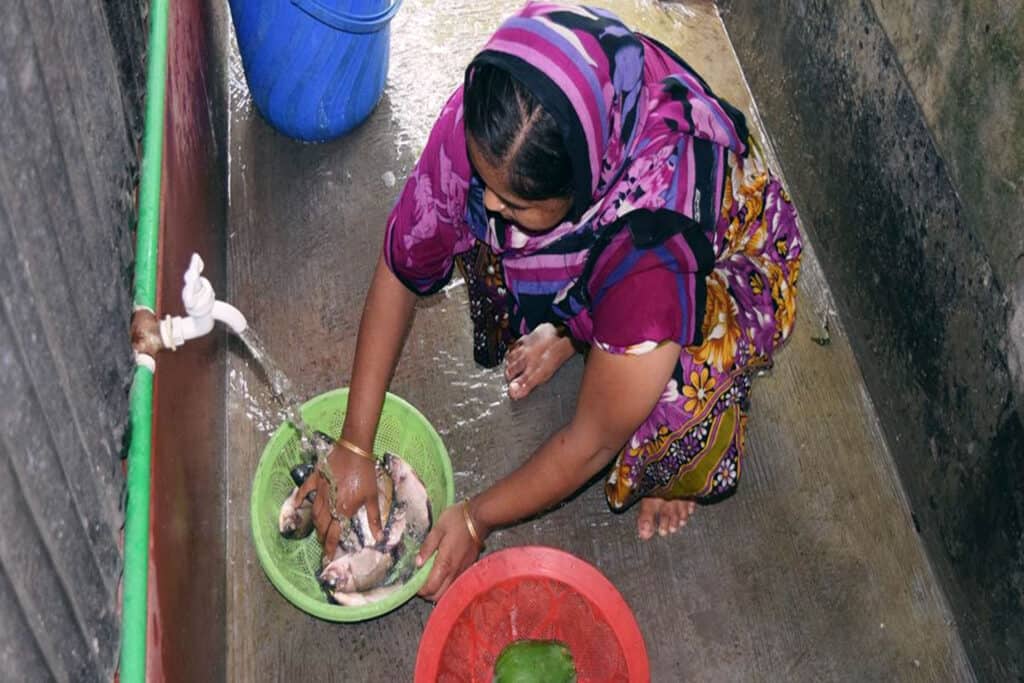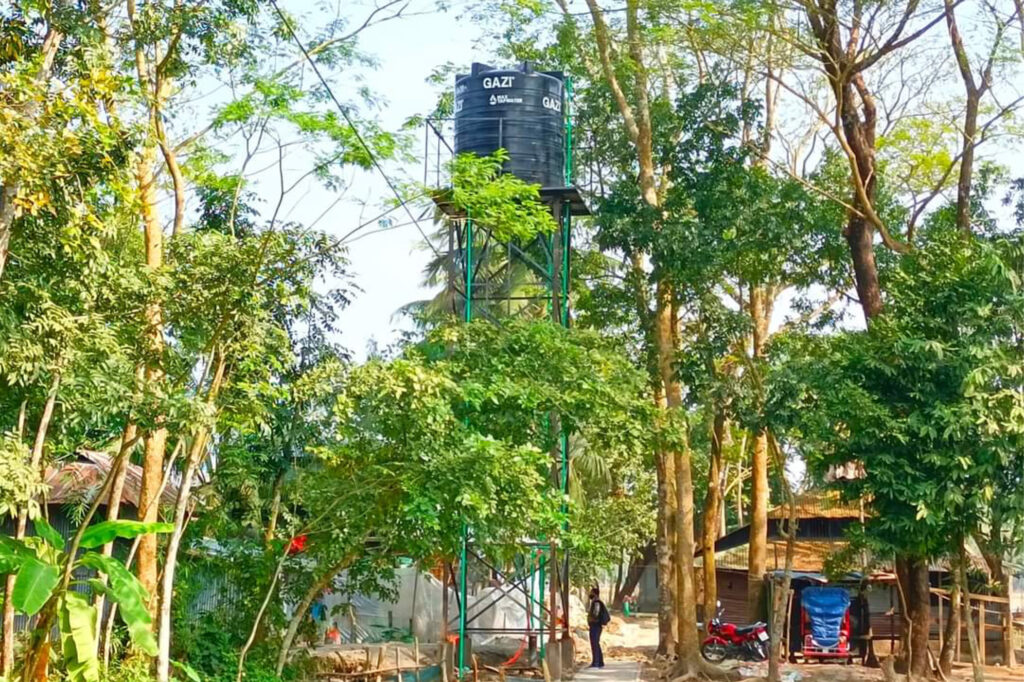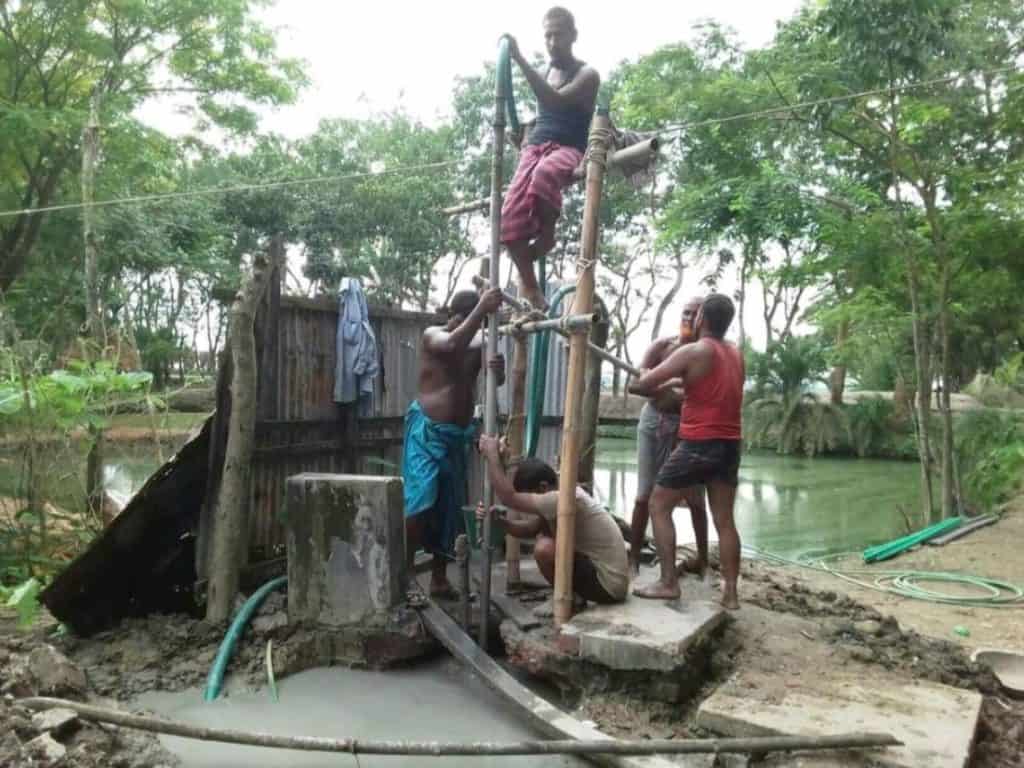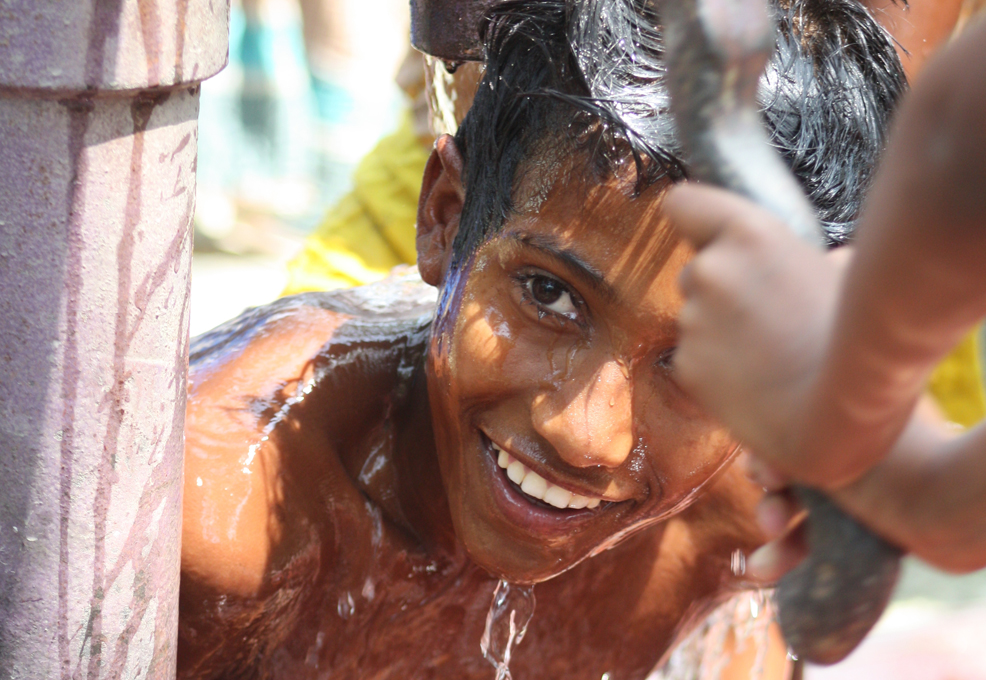Max Tapwater: already 4000 people have water
In Bangladesh we are working hard to connect as many households as possible to the mini water networks that are being built. In this update you can read how far we have come and what we encounter in practice.

96%
Bangladesh is doing well! 1084 households now have a water connection. That is more than 4000 people. They are distributed over the first 20 water networks that have been constructed. In the near future, this number must be further increased to a maximum of 80 households per network.
It is striking that no less than 96% of households also pay the bill properly. The question is whether Dutch water companies also achieve that percentage.
Big demand
Recently, many requests have been received from communities close to the first twenty networks. They see the positive effects and also want a water network in their area.
It sounds logical to start the new networks there, but unfortunately it is not that easy. The local government also has a strong opinion on this and sometimes wants to invest in other areas.


Increased costs
In Bangladesh it is also noticeable that building materials are becoming much more expensive. In addition, in practice more pipelines are needed per network than previously thought: not 1.3 but 1.5 to 2 kilometers per network.
It is therefore being examined whether the design of the networks can be smarter or whether cheaper materials can be used that still last a very long time.
Looking forward
50 new sites have been selected to build water networks. Construction is already underway at 6 locations.
We expect to realize a total of 30 networks this spring. These start on average with 40 household connections and then slowly expand. In principle, it should be possible to provide more than 9,000 people with clean drinking water before the summer.

Max Tap Water
In Bangladesh, 73 million people still do not have access to water at home. As a result, especially women and girls spend at least 2 hours a day to fetch water. That water is often polluted with various diseases and malnutrition as a result.
Our mission in this project is therefore: easy, safe and affordable water at home. We will do this in an enterprising way by constructing mini water networks that will pay for themselves. This way we get a flywheel effect!
You might want to read these updates too:
Bushra’s personal story
We’ve supported the Max Tapwater project to realise 80 water networks in different locations in Bangladesh since 2022. Aside from direct access to clean water and the creation of jobs, the project…
Read moreTwenty new water grids in Bangladesh
2023 was a productive year for the Max Tapwater project in Bangladesh. The number of water grids has doubled, bringing many more advantages than just clean water from the tap.
Read more